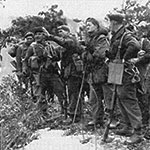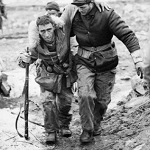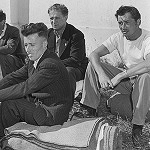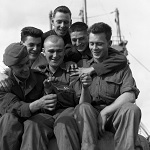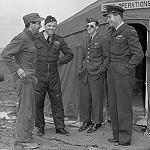Korea and the Enduring Experience of Canada's Soldiers
April 23, 2021 - Defence Stories
Author: Lieutenant-General Wayne Eyre
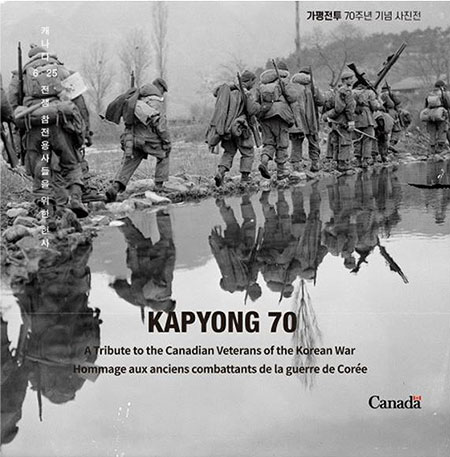
Caption
Kapyong 70: A Tribute to the Canadian Veterans of the Korean War
The following chapter was penned by Lieutenant-General Wayne Eyre while he was Commander of the Canadian Army, and is excerpted from the commemorative photo book KAPYONG 70: A Tribute to the Canadian Veterans of the Korean War published by the Embassy of Canada to Korea to mark the 70th Anniversary of the Battle of Kapyong and to honour the sacrifice and courage of Canadian veterans of the Korean War.
The 70th anniversary of the Battle of Kapyong warrants commemoration of the very real achievements of our Canadian soldiers during the Korean War. It also offers a time for reflection and the opportunity to connect the achievements of our past with the experience of the present, putting current military service in a deeper context.
As a junior officer posted to the 2nd Battalion, Princess Patricia's Canadian Light Infantry (2 PPCLI) in the late 1980s, my formative years in the Army were steeped in the regimental lore of Kapyong. From veterans sharing their stories in the mess, to the mementos and artefacts that surrounded us, and the history lessons so important for regimental indoctrination, the battle was part of our DNA. Thus the opportunity to visit the battlefield itself several times, first while on exercise in 2012, and then while stationed in Korea several years later, was akin to a pilgrimage and precipitated
thinking on how we as soldiers characterize our own operational service.
Every war in a far-off land is different, but there are some Canadian soldier experiences that are enduring. Many have remained unchanged in the seven decades since Kapyong, as our soldiers deployed on multiple missions around the world. We are fortunate to have not had to physically defend our country at home from enemy aggression for a very long time, but rather we put our soldiers at risk around the world to defend others. This root commonality results in many similar experiences: the frenzied preparations before setting off, the team-building, the good-byes; the complex mixture of emotions while deploying — apprehension, excitement, fear, thirst for adventure, uncertainty, impatience, even boredom; the assault on the senses upon arrival — unfamiliar languages, dress, food, smells, all indicative of a foreign culture; and, in the worst of circumstances, the spilling of Canadian blood into foreign soil.
The commitment to the first tasks once on the ground often demands introspection as the danger becomes more immediate, and one asks, "Am I ready?" In a sterling example of moral courage, the Commanding Officer, Lieutenant-Colonel Jim Stone, answered collectively for the 2 PPCLI in saying, "No." In a lesson that resonates through to the present, despite the pressure from the United Nations Command to immediately commit the battalion to combat, he demanded several weeks of training to ensure it was ready after the long sea voyage to Busan.
In a volunteer Army, now as it was then, the reasons our soldiers sign up and deploy are many. Often it is out of a sense of service and duty to the country — doing one's part. For others, it is adventure, and in some cases for the pay. Regardless, at some point there will invariably be questions as to the larger purpose — why are we here, and, sometimes in hindsight, was it worth it?
Irrespective of their reasons for signing up, soldiers want to succeed. They want their efforts to be of value and be valued by others. Our veterans of the Korean War have that tangible sense of collective achievement. Veterans who return to the country they fought to defend see the vibrant, dynamic democracy that the Republic of Korea has become, arising out of the destruction of war to become an economic and technological powerhouse. It is a country that remembers, one that is so grateful for those that came from afar in its time of greatest need. What Korea has become, and the manner by which it remembers those that played a role in its survival, puts our veterans' service and sacrifice in context and offers meaning to what they went through.
The Korean War provides a clear analogy to the purpose of the deployments for the contemporary Canadian soldier. We want our troops to be able to return to a distant country 30, 40, or 50 years hence as veterans themselves, able to proudly say that they were part of making it a better place. Their part, however big or small in the overall effort, played a part in making it, and our world, better. It reframes their current experience when they can picture their future selves saying, "It was worth it."
In some parts of the world where we have deployed it can be difficult to envision such a success half a century or more from now. I expect that in the devastation of the Korean War, our veterans likely had similar sentiments, but absent their efforts, a chance for a better future would not have even existed. History will be the judge of outcomes – but we must serve knowing we have done our part.
Our soldiers who left Canada seven decades ago for an unknown country on the other side of the world called Korea should be celebrated and their service and achievements commemorated. There are aspects to the experience of a Canadian soldier leaving our relatively affluent and peaceful country behind to travel to the world's hotspots as familiar to contemporary soldiers as they were to their khaki-clad forebears in the early 1950s. The experiences of our Korean War veterans not only continue to provide useful lessons for the modern soldier but also a long-term example for how we give meaning to service. We need to continue to remember their sacrifices and emulate their example.
